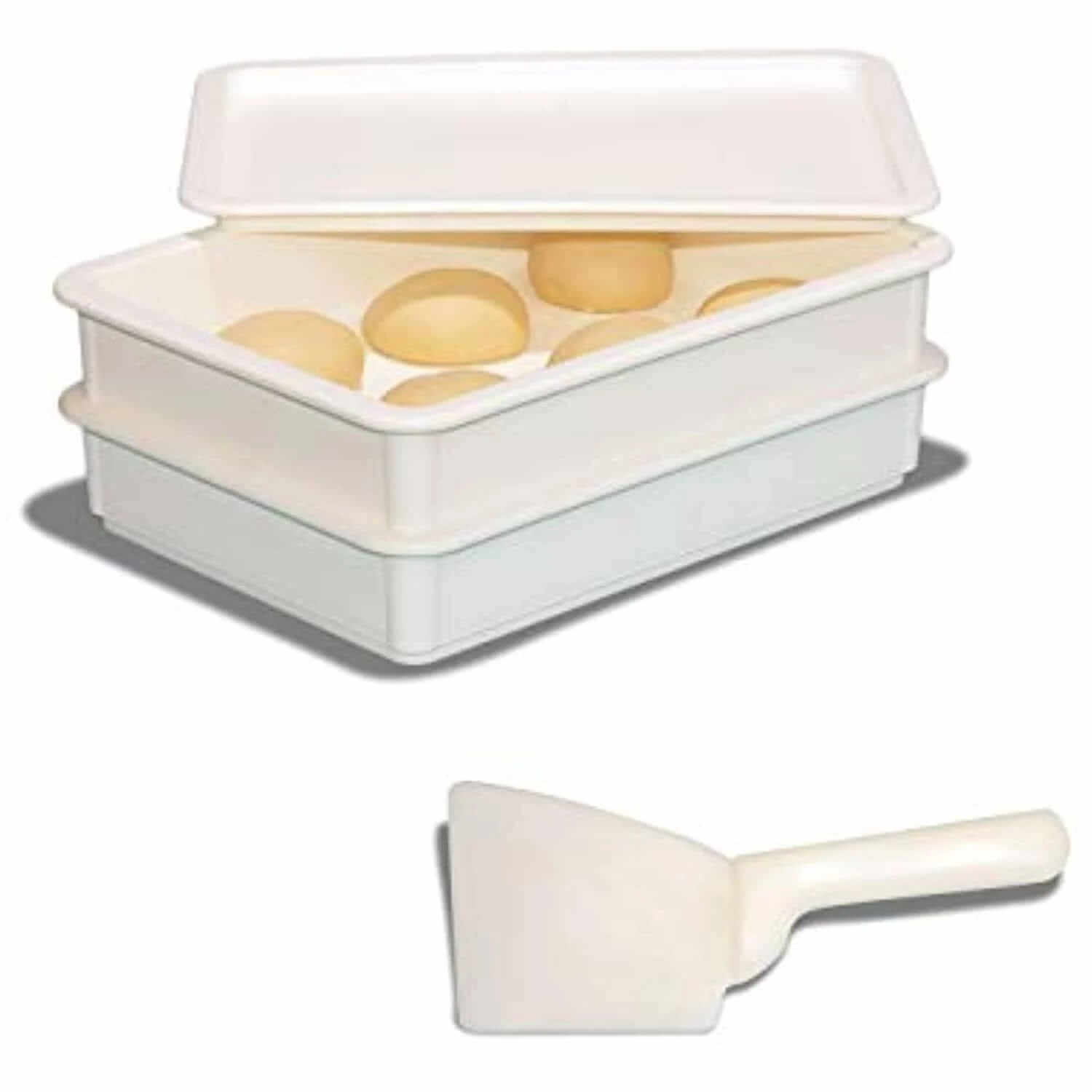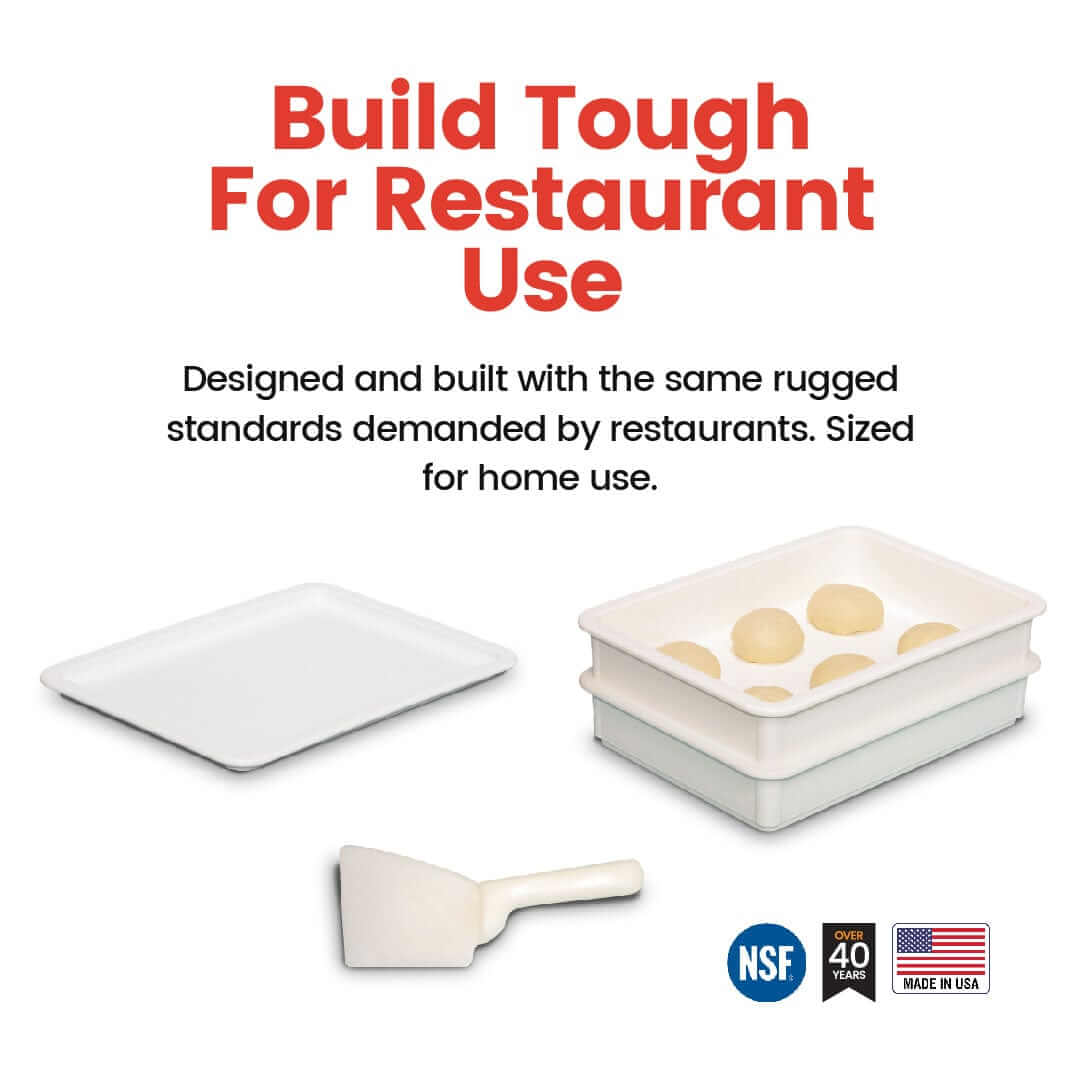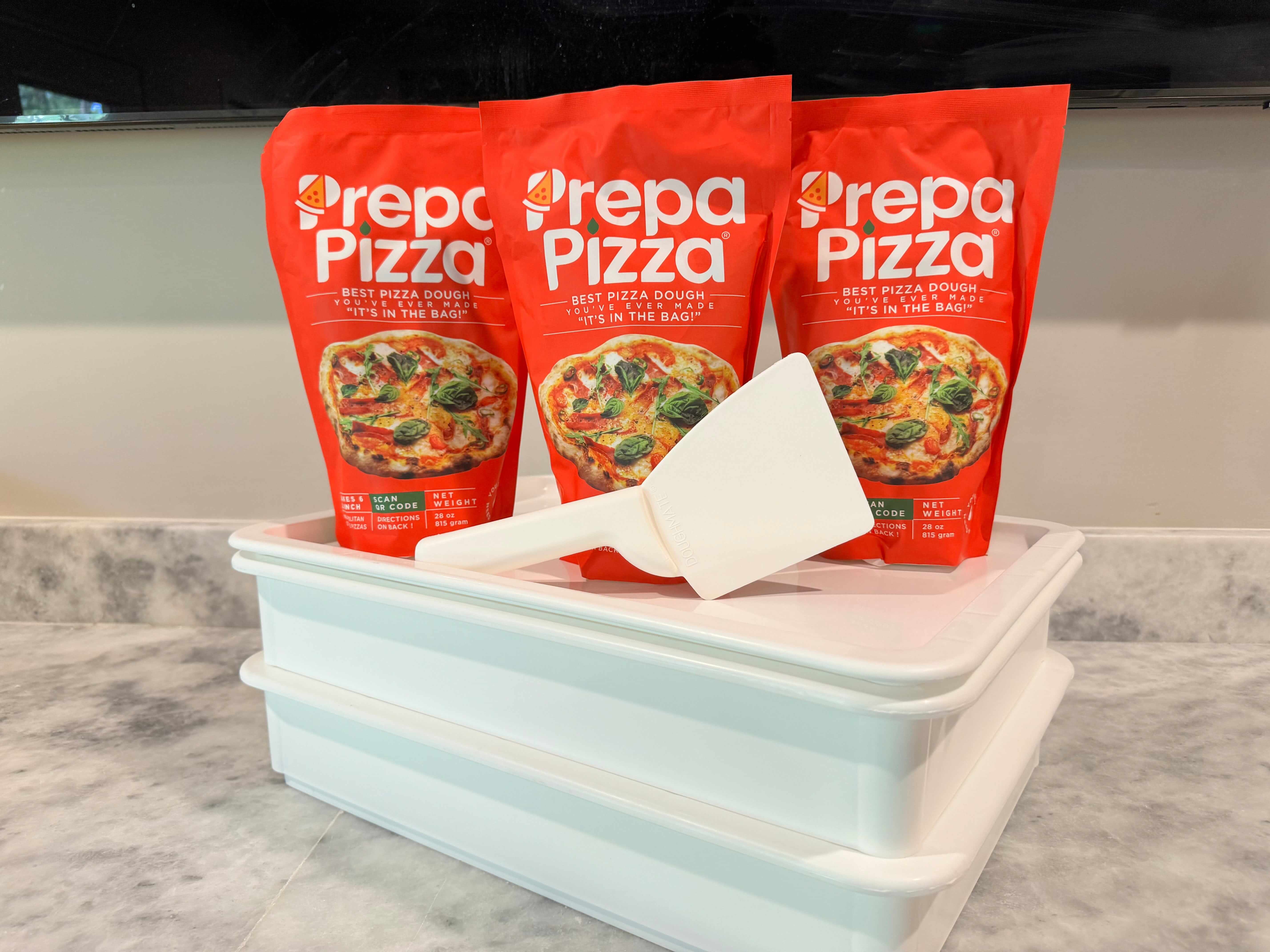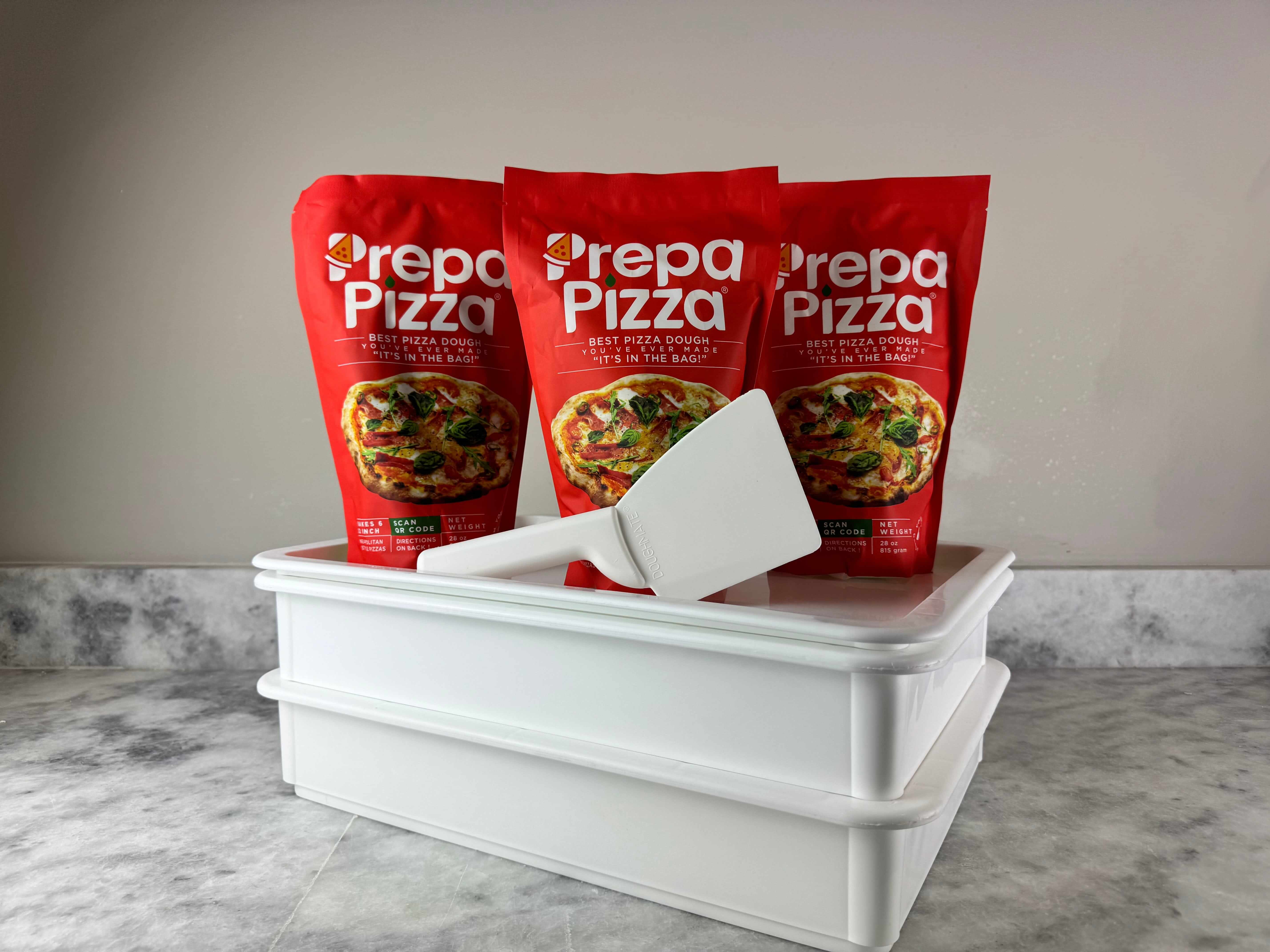
Purchase Pizza Dough: Tips for Choosing the Best Options for Homemade Pizza
When it comes to creating the perfect pizza at home, purchasing high-quality pizza dough is the key to achieving that delicious restaurant-style crust. With Prepa Pizza, you gain access to premium dough made from quality ingredients, ensuring your homemade pizza stands out. No matter your skill level in the kitchen, having the right base can elevate your cooking experience.
Imagine the ease of having ready-to-use dough that allows you to focus on your favorite toppings and sauces. Whether you crave a classic Margherita or a creative combination of flavors, having the best base can make all the difference. Prepa Pizza offers you the convenience of high-quality dough, enabling you to whip up delicious pizzas in no time.
Embrace the joy of homemade pizza nights without the hassle of kneading and rising time. With Prepa Pizza's premium dough, you can create the perfect crust effortlessly, bringing your pizza dreams to life. Enjoy each bite knowing that you have started with the finest quality dough available.
Exploring Pizza Dough
Understanding the composition and types of pizza dough is essential for creating the perfect pizza. The right dough enhances flavor and texture, making your homemade pizza experience enjoyable and satisfying.
Composition of Pizza Dough
Pizza dough primarily consists of four basic ingredients: flour, water, yeast, and salt. Each component plays a crucial role in the final product.
- Flour: The backbone of any dough. Use high-protein flour for a chewier crust.
- Water: Hydrates the flour, activating gluten formation. The right hydration level is key for texture.
- Yeast: A crucial leavening agent that helps the dough rise. Fresh yeast can provide a distinct flavor.
- Salt: Enhances flavor and controls yeast activity, preventing overproving.
With these ingredients combined, you can create a dough that is versatile for various pizza styles, from thin crust to deep dish. Prepa Pizza offers premium quality dough, ensuring that each component is crafted for the best results.
Types of Pizza Dough
Different pizza styles require specific types of dough to achieve their unique flavors and textures. Here are some popular options:
- Neapolitan: A traditional style using high-protein flour, characterized by a soft and chewy texture.
- New York-style: Thicker than Neapolitan but still foldable. It has a crispy crust, perfect for street vendors.
- Sicilian: Known for its thick, rectangular shape and airy texture, this dough uses more yeast and baking techniques for height.
- Gluten-free: Made from alternative flours, suitable for those with dietary restrictions.
Each type offers a distinctive experience, and utilizing premium dough from Prepa Pizza ensures you get a restaurant-quality product every time.
Selecting a Dough Supplier
Choosing the right dough supplier is crucial for maintaining quality in your pizza offerings. Two key factors to consider are evaluating dough quality and ensuring proper security checks.
Evaluating Dough Quality
When selecting a supplier, examine the quality of the dough. You want to ensure that the dough not only meets your culinary standards but also contributes to a superior pizza experience.
Look for suppliers like Prepa Pizza, known for their premium quality and use of high-grade ingredients. Consider the following criteria:
- Texture: The dough should be smooth and elastic, ideal for stretching and shaping.
- Fermentation: Proper fermentation adds flavor and improves digestibility.
- Ingredients: Avoid fillers, opting for all-natural components that enhance the overall product quality.
Request samples from potential suppliers and conduct taste tests in your shop. This will help you determine which dough aligns best with your desired pizza characteristics.
Importance of Security Checks
In an era where cybersecurity is paramount, ensuring that your dough supplier maintains robust security protocols is essential. This includes conducting security checks to protect sensitive information and prevent data breaches.
When partnering with a supplier, inquire about their security measures. Check for:
- Malware Scans: Ensure that the supplier's website and systems are routinely scanned for malware, safeguarding your shop's data.
- Compliance Measures: Verify adherence to standards and certifications protecting customer and business information.
- Supplier Reputation: Research customer feedback to assess their reliability in maintaining security protocols.
Choosing a supplier who prioritizes security can mitigate risks and ensure a smoother operational experience for your business.
Storing and Handling Dough
Properly storing and handling pizza dough is crucial for maintaining its quality and achieving the best results during preparation. Your techniques and storage solutions can significantly impact the texture and freshness of the dough.
Proper Dough Handling Techniques
When you handle pizza dough, ensure that your hands, surfaces, and tools are clean to prevent contamination. Lightly flour your work surface to prevent sticking, but avoid over-flouring, which can dry out the dough.
Always let the dough come to room temperature before shaping, as this increases flexibility and reduces tearing. If you notice dough balls nearing their expiration, organize them in a way that allows for airflow, such as using a wire tree rack, to minimize moisture buildup and spoilage.
Storage Solutions to Prolong Freshness
To keep your Prepa Pizza dough fresh, store it in an airtight container or wrap it tightly in plastic wrap. Refrigerate dough that you plan to use within a few days. It’s recommended to use the dough within 72 hours for optimal quality.
For longer storage, freeze the dough. Simply portion it into smaller balls, individually wrap each in plastic, and place them in a freezer bag. This method allows you to defrost only what you need while keeping the rest preserved. Always label your containers with the date to track freshness easily.
Dealing With Dough Issues
When working with pizza dough, encountering issues is common. Understanding these problems and knowing how to address them can enhance your experience and ensure better results with your dough from Prepa Pizza.
Identifying Common Dough Problems
Recognizing common dough problems can save you time and frustration. Here are a few issues you may encounter:
-
Tearing: If your dough tears while shaping, it may indicate that it's too cold or lacks sufficient gluten development. To fix this, allow it to rest at room temperature and gently warm it up.
-
Shrinking: Dough that keeps retracting is often a sign of overworking. Let it rest for at least 10-15 minutes to relax the gluten before stretching it again.
-
Sticky Texture: If your dough is overly sticky, it likely has too much moisture. Dust your working surface and hands with flour, or incorporate a small amount of flour into the dough while kneading.
Understanding these issues helps you troubleshoot effectively and achieve the best results.
Addressing Malware in Point of Sale Systems
While dealing with dough issues is essential, securing your operations is equally critical, especially given the reliance on technology. Malware or malicious software can disrupt your point of sale systems, affecting service quality.
-
Regular Updates: Ensure your software is up to date to protect against vulnerabilities.
-
Antivirus Solutions: Utilize reputable antivirus programs to detect and remove malware threats.
-
Network Security: Secure your Wi-Fi networks and limit access to sensitive areas of your system.
Taking these steps not only protects your dough purchasing but also maintains overall operational integrity. By focusing on security, you keep your business running smoothly and efficiently.
Purchasing Policies
When purchasing pizza dough, it's important to be aware of the specific policies that affect your transaction. Understanding return policies and ensuring a safe transaction process will help you make informed decisions and maintain confidence in your purchase from Prepa Pizza.
Understanding Return Policies
Every vendor has its own return policy, and you need to familiarize yourself with Prepa Pizza's approach. Typically, returns are accepted if the dough is in its original packaging and has not been used.
Key points to consider include:
- Timeframe: Many companies allow returns within a certain period, often ranging from 7 to 30 days. Check what Prepa Pizza specifies.
- Condition: Ensure the dough remains untouched and sealed, as opened or used items often cannot be returned.
- Refund Process: Understand if you will receive a full refund, store credit, or an exchange.
Having clarity about these policies can prevent issues later and ensure you have a positive experience.
Ensuring a Safe Transaction Process
Safety in your transaction is paramount. When purchasing from Prepa Pizza, there are several factors to keep in mind.
- Secure Payment Methods: Always choose reliable payment options, like credit cards or trusted online payment systems, to protect your financial information.
- Personal Information Protection: Ensure that the platform encrypts your data. Look for signals like "https://" in the web address.
- Order Confirmation: After making a purchase, expect a confirmation email with details. This serves as proof and keeps you informed about the status of your order.
By following these guidelines, you can ensure that your purchase of pizza dough is both safe and satisfactory.
Frequently Asked Questions
When considering where to purchase pizza dough, various factors can enhance your pizza-making experience. You should be informed about top-rated suppliers, how to evaluate dough quality, and understand the differences between homemade and pre-made options.
What are the top-rated places to buy pizza dough?
You can find pizza dough at local grocery stores, specialty food shops, and pizzerias. Prepa Pizza is an excellent option for high-quality premade dough that offers consistency and great taste.
How do you select quality pre-made pizza dough?
Look for dough made from premium ingredients. High-quality pizza dough should have a good balance of protein and hydration. Always check for freshness, and if purchasing frozen dough, ensure it has been stored properly.
What are the differences between homemade and store-bought pizza dough?
Homemade dough allows for full control over ingredients and flavors. Store-bought options, like those from Prepa Pizza, offer convenience and consistent results. While homemade can be customized, store-bought might save you time and ensure reliability.
Can you purchase pizza dough in bulk, and where?
Yes, many suppliers, including Prepa Pizza, offer bulk purchasing options. This is particularly useful for restaurants or frequent home cooks looking to stock up on quality dough.
How long can you store purchased pizza dough before it's no longer usable?
Fresh pizza dough can typically be refrigerated for up to three days. If you freeze it, it can last for several months. Always check for any signs of spoilage before use, such as off odors or changes in texture.
Are there any local stores offering freshly made pizza dough?
Many local pizzerias and specialty grocery stores provide freshly made pizza dough. You may also check with Prepa Pizza for options to buy directly from the supplier for the best quality.




































